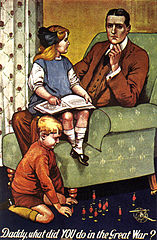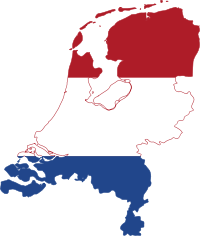
How would the creationism-evolution controversy have been different if World War I had never happened? Today the question is answered by Abraham “Ab” C. Flipse, a historian of science at and the university historian of VU University Amsterdam, whose recent research focuses on the creationism-evolution controversy in the Netherlands.
The Netherlands is often seen as a stronghold of creationism. And indeed, although the country is to a large extent secularized and the proportion of anti-evolutionists in the population is much smaller than in the US, there are regularly fierce debates about creationism. As in other countries, the Dutch creationist movement has been influenced since the seventies of the last century by the revival of the “flood geology” of Morris and Whitcomb. But, as I have argued in my article “The Origins of Creationism in the Netherlands,” this “American-style creationism” could not have been successful in the Netherlands without a pre-existing receptive environment for anti-evolutionism, which had been formed during the interbellum period.
 This raises the question of whether the debate in the Netherlands would have followed a different course if World War I had not taken place. First, it has to be observed that the country was not involved in the war; it remained neutral. And yet the war had a variety of indirect effects and, as in other countries, produced a break with the past in the Netherlands. The war had undermined many certainties, and many intellectuals were shaken. There was a widespread sense of crisis. This caused the rise of movements of cultural reorientation and renewal after the war, even among orthodox Protestants, who lived in a state of relative isolation. In these Calvinist circles, however, this reorientation had divergent effects. On the one hand, there was a group that favored greater openness towards new developments. Some Calvinist scientists, for example, accepted evolutionary theory to a large extent. On the other hand, in reaction, church leaders tightened the reins and initiated even more conservative policies.
This raises the question of whether the debate in the Netherlands would have followed a different course if World War I had not taken place. First, it has to be observed that the country was not involved in the war; it remained neutral. And yet the war had a variety of indirect effects and, as in other countries, produced a break with the past in the Netherlands. The war had undermined many certainties, and many intellectuals were shaken. There was a widespread sense of crisis. This caused the rise of movements of cultural reorientation and renewal after the war, even among orthodox Protestants, who lived in a state of relative isolation. In these Calvinist circles, however, this reorientation had divergent effects. On the one hand, there was a group that favored greater openness towards new developments. Some Calvinist scientists, for example, accepted evolutionary theory to a large extent. On the other hand, in reaction, church leaders tightened the reins and initiated even more conservative policies.
Clashes between progressive and conservative Calvinists resulted in several conflicts in the churches during this period. The most prominent was an ecclesiastical procedure in 1926 that led to a ruling by the synod about the question of whether the serpent in Paradise had actually spoken to Eve. This trial has been compared with the Scopes “Monkey Trial” the previous year in the US. Leading theologians now opted for a course of strict anti-evolutionism, and even found inspiration in the publications of George McCready Price, the Canadian Seventh-Day Adventist who founded modern “flood geology.” As a result, young Earth creationism became part of the Dutch Calvinist tradition. The road to a straightforward acceptance of “theistic evolution” was blocked and the discussion about this topic was to flare up again only in the fifties. Although young Earth creationism has not gone unchallenged among orthodox Protestants, it has remained a non-negligible factor in Dutch society. In summary, this development originated in the period immediately following World War I and it can only be understood in the context of the shock caused by the war.
Literature
Abraham C. Flipse, “The Origins of Creationism in the Netherlands: The Evolution Debate among Twentieth-Century Dutch Neo-Calvinists,” Church History 81/1 (2012): 104–147.
Stefaan Blancke, Abraham C. Flipse, and Johan Braeckman (in press), “The Low Countries,” in: Stefaan Blancke, Hans Henrik Hjermitslev, and Peter C. Kjærgaard, editors, Creationism in Europe. Baltimore: Johns Hopkins University Press, forthcoming.
